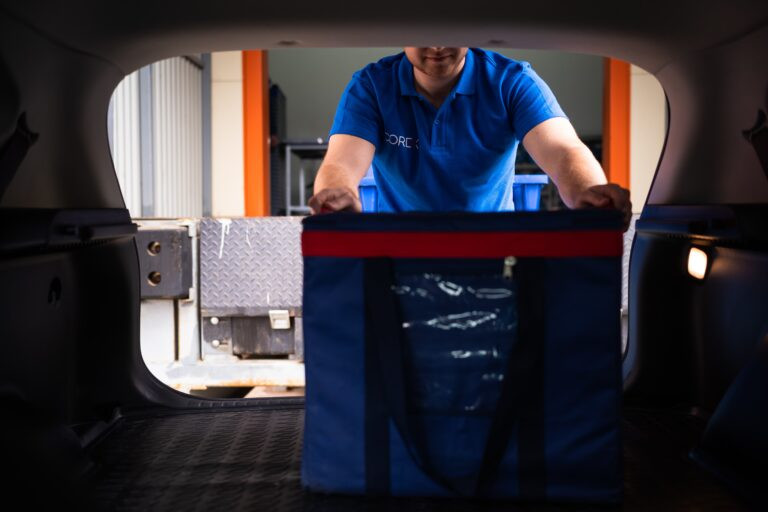Lane mapping is becoming more widely used to ensure the supply chain performs well from a quality and compliance perspective, but at the same time it is giving people that visibility to ask, what are the other options?
There are a lot of platforms in the industry that provide the opportunity to say here is a pharma product that has this temperature requirement and needs to go from here to here.
Some of these platforms are trying to sign people up to provide information such as which airline has a temperature-controlled facility at that origin and the same facility at the destination, and they have four direct flights a day.
That type of technology is being made more widely available to the shippers, providing the level of detail even down to the ground handling capabilities that are available in those countries and destinations.
There is another technology being pushed within the market, some of which is because of real-time data logging: there is a big push currently for invoice auditing.
Companies approach the shippers who are moving the product, offering to redesign their supply chain, make it more efficient, take out cost and improve performance.
However, their starting point is to request they do an audit of the company’s invoices. They want the invoices from the courier and within that will be details of the airline involved in the shipping supply chain.
“The primary contract between a pharma company will always be a courier or freight forwarder who will organise and book the air freight requirements. The airlines rarely have direct involvement with the shipper, and they rarely have a billing relationship with them,” Steve Healy, Vice President, CEO of COREX Logistics, explained.
“They are auditing the invoices and claiming overcharges, however what that doesn’t consider is the nuances of pharmaceuticals and clinical trials.
“Simply auditing invoices will never be the complete picture and there is an argument that if you need that service, your internal logistics team or finance team are missing a trick.
“Therefore, if you were to manage your suppliers more effectively from the outset, tell them how you want billing and invoice breakdowns you should be able to cover those elements anyway.
“There are a lot more platforms out there which are trying to give visibility on performance and price.
“We are also seeing an increase whereby premium couriers are trying to develop better relationships with commercial airlines.
Labour challenges
As a result of Covid-19, some airlines have gone down the route of hire and refire. There were massive issues in airport infrastructure post-Covid-19, even down to security. A lot of those people left and found other occupations during the pandemic.
It continues to be an issue, particularly where you need high levels of training and security clearance.
“If you have experienced people leaving the profession, even if you can recruit, you are taking on people without experience who will need to go through the necessary training,” Healy highlighted.
“It is not just about recruitment, you need to retain the talent with the on-the-ground, operational experience as well.”
Shipping high-value pharma payloads requires another level of experience and expertise especially when shipping dangerous goods. The airline will need to have a dangerous goods safety advisor on site, someone who must check and sign off on whether there is the correct labelling on a box, or if it is in limited quantities.
“We need to have that qualified dangerous goods person on site and if there is not, your cargo may not fly,” he added. “It is really important to retain the talent because even if airlines can recruit and replace they will still lack the on-the-ground operational experience.”
Regulations reshape airfreight
Environmental, Social and Governance, five years ago were just buzzwords, then three years ago people started including them as part of a request and they would score companies on it, even if it wasn’t so much of a decision making factor.
Now it is firmly is front and centre – particularly if companies are trying to win business away from someone, they must be strong in that area.
“I was in South Africa and met with several pharma companies and within their own strategy of one of these global pharma companies, they had to ask themselves the question three times: does this need to go by air?” Healy explained.
“Like the quality process of five why, you ask why five times and get to the root cause of why. They had to justify to themselves internally three times why does it need to go by airfreight?
“It really is something that is an expectation now and you must be able to evidence it. Some customers might ask to be given details on the carbon footprint of a particular lane.
“There has been much more of a focus within the last three to four years and increasingly companies are getting requests from customers asking for the carbon footprint for the work being done for them, even to the point of having to justify the price, the service and the carbon footprint impact.”




